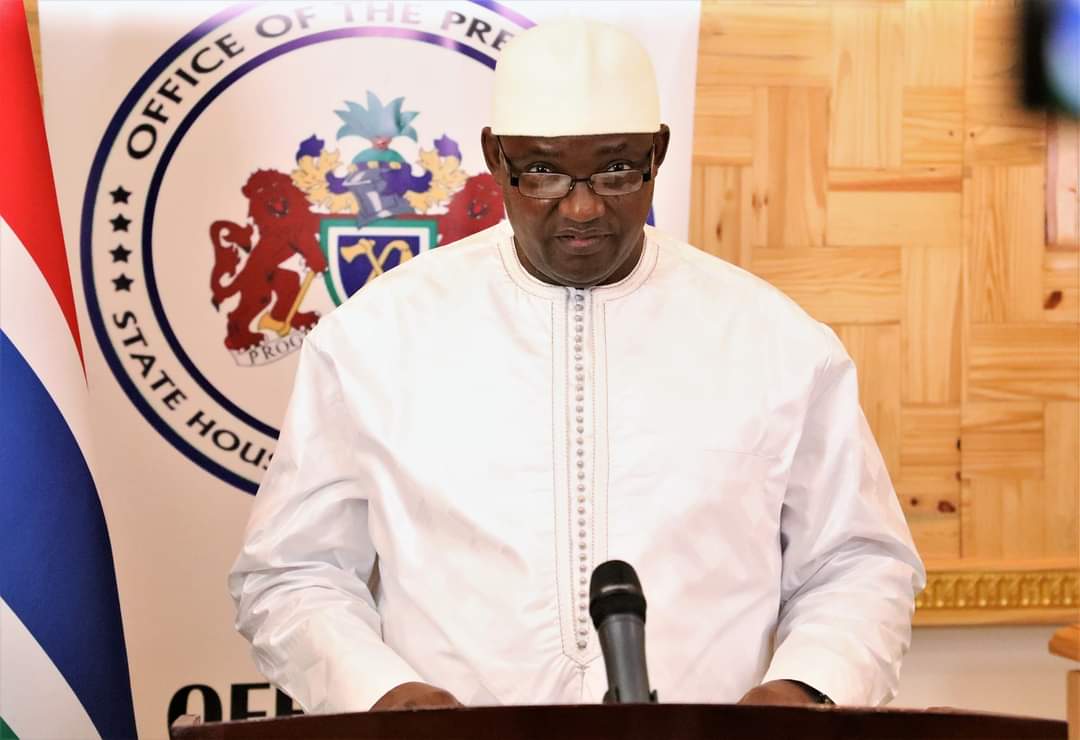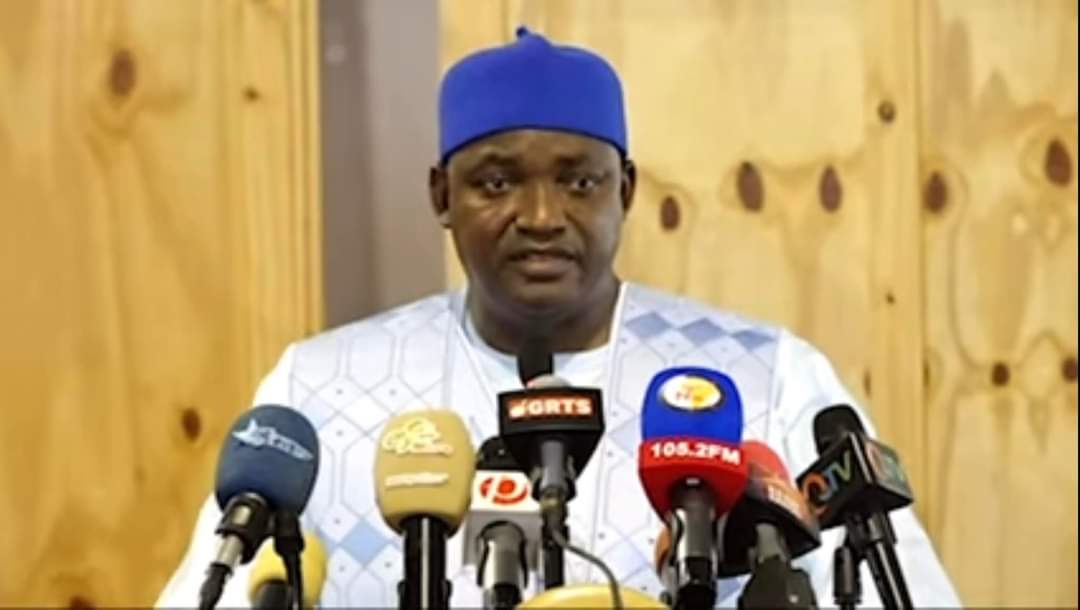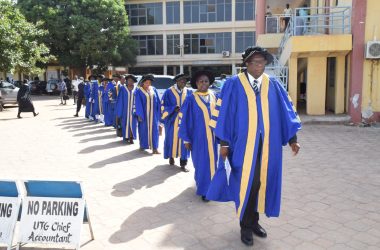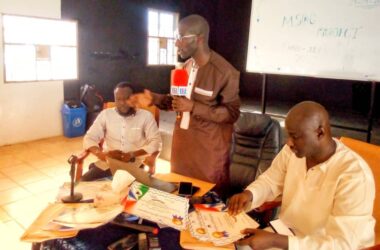
I feel honoured to deliver this address at this colourful ceremony organised to lay the foundation stone of The Gambia University of Applied Sciences, Engineering and Technology (USET) here in Brikama, West Coast Region.
For obvious reasons, this event has a high profile on the Government’s educational transformation agenda of providing quality and relevant tertiary and higher education to Gambians.
In the past, only a selected few had access to higher education; however, through the National Qualifications Framework, the education system now provides pathways that allow students from Grade Nine to choose careers in Technical Vocational Education and Training (TVET) and other educational programmes. Expanding such opportunities has made it necessary to establish a university system in the Applied Sciences, Engineering and Technology, hence the significance of the occasion.
From now on students who choose to become engineers and architects can proceed beyond the Higher National Diploma (HND) level to pursue degree programmes in Engineering and related disciplines at USET.
We thank the World Bank for the foresight of designing a programme linked to the Africa Centre of Excellence (ACE) initiative to positively influence development. The reality is that Africa must depend on its institutions to develop her human resource and stimulate economic growth and development.
With a project that builds the capacity of our institutions to train African youths on African soil using modern approaches and equipment, we can look forward to a new Africa that is able and ready to tackle its challenges. The only regret is that it has taken far too long to undertake this educational venture.
Let me stress that my government will continue to prioritise the development of The University of The Gambia (UTG), and we endorse the efficiency mechanisms adopted to integrate three schools of The Gambia College into the UTG.
In the same way, we endorse the upgrading and strengthening of the Management Development Institute to deliver degree programmes and support the Civil Service Reform and the broader sector administration programmes.
Away from that, teacher training and education management now has a new dimension that creates avenues for higher levels of qualification, leading to degree courses. This is the result of upgrading the School of Education into a teacher training university.
It is equally important, however, that we create multiple pathways for hands-on education and training. The emerging Centre of Excellence in Science, Technology and Engineering for Entrepreneurship will help the sector to deliver degree programmes that would groom skilled job creators through entrepreneurship and other outlets. Such ventures will avail the youth various openings to address our capacity challenges.
Many nations have successfully transformed their economies through their human resource, and it is clear to us that Applied Education is an effective means of achieving this. As a result, we cannot delay harnessing education and training as development tools, nor can the people wait indefinitely for development.
To nurture our young institutions, we will collaborate with the Kwame Nkrumah University of Science and Technology in Kumasi, Ghana, and De’Montfort University in Leicester, the United Kingdom. By the time we wean our universities from those well-established institutions, the Gambians currently on PhD programmes and mentorship will have been qualified enough to join their compatriots to take full responsibility of our universities.
The grant funding for this project is available, and we have contracted FENTA Consulting to supervise the construction of the three faculty buildings of Electrical/Electronics, Mechanical, and Civil Engineering, respectively. Gradually, the University Administration will introduce other faculties, such as Chemical Engineering, Architecture and Design and Computer Sciences, as outlined in the Higher Education Master Plan.
Government expects the senior secondary schools to provide qualified students for USET, while the regional TVET centres feed the HND programme. By implication, the education sector needs to establish and strengthen TVET centres across the country, especially in deprived areas.
It is good that Ndemban and Kanilai Skills Centres are almost ready to begin operations. MRC Holland is working to make this happen, and we thank them abundantly for their immense support and investments.
The rehabilitation of Mansakonko Skills Centre is near completion, and Julangel will be rehabilitated next. To complement these efforts, the school mapping process for two other centres is almost complete in CRR.
We are aware that the education sector is working hard to address their capacity constraints and re-position themselves better to develop the required human capital for national advancement and prosperity, and they know that TVET is a vital component in the process.
We cannot begin such projects without public support, especially from good and well-meaning citizens. The Bojang Kunda family of Brikama has been at the forefront of providing adequate space to enable us to implement this project. We thank them for their kind and noble gesture.
There is enough land here to establish the education hub that Government proposes for the area. I advise the residents of Brikama, therefore, to make good use of the job opportunities that will accompany the project and prepare their children for the proposed knowledge hub.
I must re-echo our thanks to the World Bank, through the Country Office, for their support. The Association of African Universities has been an excellent partner as well. We thank them too for their Pan-Africanist stance.
I also thank His Excellency, the Vice President, for pioneering this policy direction. He always speaks about these proposals with passion. The current Honourable Minister of Higher Education and his technical team, at the Ministry and USET, equally deserve commendation for implementing the project.
By no means the least, we recognise the efforts of the Governor and the people of the West Coast Region for supporting our initiatives and projects. I appeal for everyone’s continuous support and collaboration for the successful completion of this project and all other development initiatives in the country.
Meanwhile, I urge you all to encourage your children, especially the girls, to enrol in the University for the Engineering and other STEM programmes. In this way, they will contribute to achieving our national development aspirations.
Government plans to introduce a loan scheme next year to help a bigger number of youths to acquire tertiary and higher education, irrespective of their social background. To realise this, we will continue to engage both local and international partners to implement more similar landmark projects and initiatives.
As customary, I invite you all to join me in laying the foundation stone of The Gambia University of Applied Sciences, Engineering and Technology (USET).
President Barrow was speaking on Saturday at the laying of the foundation stone of The Gambia University of Applied Sciences, Engineering and Technology (USET) in Brikama, West Coast Region.















